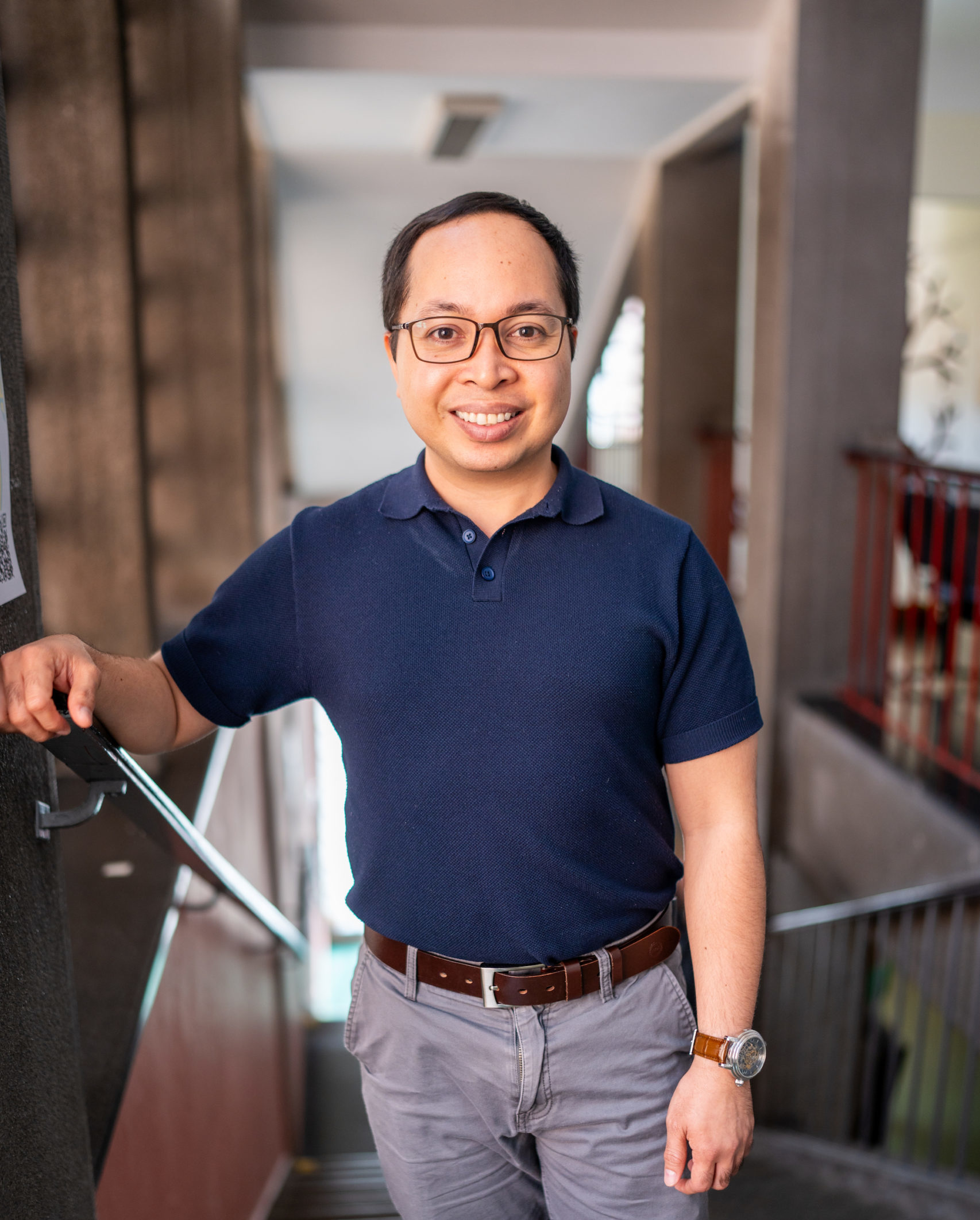
Allen Espinosa
Ph.D.
postdoc
Consultation is by appointment, please contact dr. Espinosa via e-mail address
Allen is a passionate enthusiast of music, films, and series, always immersing in soundtracks and cinematic experiences. Whether discovering new places while traveling or maintaining fitness through regular workouts, Allen enjoys an active lifestyle. With a keen ear for tunes and a love for adventure, downtime often involves staying active and exploring both the world and the screen.
Education
- Doctor of Philosophy Research Higher Degree (Science Education), 2020 The University of Melbourne (Australia)
- Master of Arts in Education major in Chemistry Education, 2012 University of the Philippines Diliman (The Philippines)
- Bachelor of Secondary Education major in Chemistry, cum laude, 2007 Philippine Normal University (The Philippines)
Expertise
Chemistry Education, Science Education, Teacher Education
Awards
- Outstanding Rural Man, Provincial Government of Aurora (2024)
- Distinguished Education Award, Philippine Society for Biochemistry and Molecular Biology (2023)
- Outstanding Achievement Award in Chemistry Education-Tertiary Level – Philippine Federation of Chemistry Societies (2023)
- Research Citation Award – Philippine Normal University (2019)
- Medicine, Dentistry, and Health Sciences Award for Learning and Teaching Achievement (Co-awardee) – The University of Melbourne (2017)
Other
- Editorial Board: Research in Science Education
Understanding the culture of science research teachers with winning science investigatory projects. Journal of Science Teacher Education. (Forthcoming).
Integrating the Key Competencies of International Large-Scale Assessment (ILSA) into the Teacher Education Curriculum in the Philippines. Journal of Teaching and Learning. (Forthcoming).
International large-scale assessment (ILSA): Implications for pre-service teacher education in the Philippines. Issues in Educational Research, 33(2), 553-569.
Accountability in preservice teacher education: Do professional standards respond to a quality assurance mechanism that would increase public confidence in teaching? In Paragas, F.d.I.C (2023). Contemporary Issues in Philippine Higher Education 3. University of the Philippines Center for Integrative and Development Studies Higher Education Research and Policy Reform Program.
Manifestations of environmental principles in bridging scientific context, reasoning and behaviour: framework in the development of environmental education programmes in the Philippines. Australian Journal of Environmental Education, 39(2), 199-212.
Understanding the pedagogical practices of biochemistry and molecular biology academics. Australian Educational Researcher, 47(2020), 839–856.
Teaching chemistry in a spiral progression approach: Lessons from science teachers in the Philippines. Australian Journal of Teacher Education, 43(4), 17-30.
Exploring misconceptions as a trigger for enhancing student learning. Research and Development in Higher Education: Curriculum Transformation, 40.
Pedagogical Content Knowledge‐Guided Lesson Study: Effects on Teacher Competence and Students’ Achievement in Chemistry. Education Research International, 2016(1), 6068930.
Does gender inequality influence interest in pursuing a career in science or mathematics teaching?. Issues in Educational Research, 26(1), 65-81.